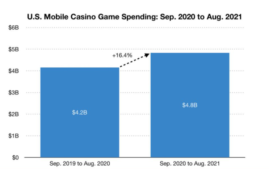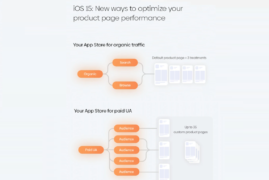To tell this story, we’ll need to backtrack a little.
The goal was to bring in these customers and facilitate their feedback programme from start to finish, which included data collection but ALSO analysis and action management. That being said, our vision was to supply these customers with extensive analysis capabilities, while also meeting the specific needs of large-scale businesses; needs such as juggling considerable amounts of feedback data across various brands, domains and even languages.
Interestingly, we first identified this need by way of our very own solution: user feedback. By giving our customers a say in the development process which would further our product along, we were able to identify the challenges our customers faced regarding this particular issue. In fact, one of our largest customers at the time – a major travel company – was responsible for really clueing us in on what would help improve their workflows.
In response to this feedback, we initially implemented custom solutions that catered to these individual issues. However, as our customer base grew and the need to balance and align feedback scores (such as Net Promoter Score and Customer Satisfaction) from varying domains and geographical regions (not to mention, languages) really took off, we quickly realised we needed a more scalable solution.
On top of that, we saw that organisations were leveraging various types of technologies to bring all of their data sources together. And seeing as how we wanted to attain the status as a ‘one-stop shop’ for user feedback, we decided that it was time to change up the playing field…

The adoption of Mopinion Raspberry brings more flexibility
In 2020, Mopinion (beta) released a brand new user interface called Mopinion Raspberry. This next generation user interface – built using the latest technologies – was essentially an accumulation of our efforts to create a solution that met the needs of our customers on all levels. We reimagined and improved all important workflows with the goal of making feedback easier to both process and analyse.
With the platform being built on React – which is a Javascript library for building user interfaces – we were able to achieve our goals of expanding capabilities within the platform and giving it more flexibility; a trait which is both beneficial to our developers as well as the users themselves.
So how did this new feature – multiple data sources in one chart – spawn from this strategy, you ask?
Let’s take a look…
Bringing multiple data sources together in one, single chart…
As we mentioned earlier in this article, our customers were previously gathering user feedback using different technologies and techniques which required them to export and import data back into the Mopinion software.
For example, some of our customers would export feedback data from two different feedback forms to an XLS file, merge the two columns together and add that XLS file as a dataset back into Mopinion. And sure, this was a fine workaround, but this also meant that the data they were importing wasn’t being visualised in real-time.
With this in mind, the team decided to start developing a feature that did the heavy lifting for these customers; a feature which would save time, present data in real-time, and prevent any potential discrepancies experienced when using external tools such as Excel (i.e. the tool’s power to deselect certain feedback scores for a more relevant comparison).
After completing the implementation of all existing functionality inside Raspberry, we wanted to look at places within the application where our new interface could be leveraged to offer new functionalities. One of those places was the chart builder, where users visualise their feedback data into appealing charts such as line charts, pie charts and bar charts – and add those to their real-time dashboards. The new components (provided by the React front-end technology) inside the interface could be used to make displaying and managing multiple data sources inside the application possible without compromising the user experience or the complexity of our code.
And thus the ‘multiple data source’ feature was born!
Getting the bigger picture
Put simply, this new feature which is highly unique to the user feedback world allows our users to compare their customer satisfaction score across different channels, their NPS across multiple brands, their goal completion rate across different funnels – as well as compare any other metrics being measured within the users’ feedback forms.
Whereas other feedback tools only offer fixed dashboards and charts or limit your charts to one single question element, i.e. a fixed NPS bar chart for an NPS survey element, Mopinion offers a great deal of flexibility and customisation options. As with all of our charts, these charts are highly dynamic and interactive which allows users to directly drill down on related open feedback comments right above the dashboard.
The result? No more falling back on Excel or Business Intelligence tools for further analysis. Our users will be given a bird’s eye view of what is happening across their channels, essentially bringing all of their data together in one place and enabling them to make smarter, data-fueled decisions.
As a feature that is offered exclusively by Mopinion, we’re really excited to see our users keep a pulse on their feedback data in real-time.

